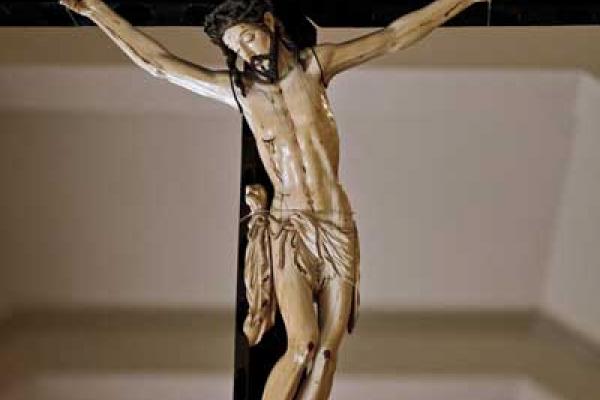Since the ban on international trade of ivory in 1989, the ivory black market has been on the rise, and a National Geographic investigation found that demand for religious art pieces carved out of the precious material has played a considerable role.
“No matter where I find ivory, religion is close at hand,” said investigative reporter Bryan Christy, whose article, “Ivory Worship,” is included in the new edition of National Geographic magazine, released Sept. 14.
“Elephant poaching levels are currently at their worst in a decade,” Christy wrote. The Convention on International Trade in Endangered Species of Wild Fauna and Flora (CITES) estimates that at least 25,000 elephants were poached in 2011, mostly for their ivory tusks.
Philippine Catholics use ivory to construct crucifixes, figures of the Virgin Mary and other icons. The province of Cebu is particularly known for its ivory renditions of the Santo Nino de Cebu (Holy Child of Cebu), used in worship and celebration.
Christy said the Vatican has not taken active steps to discourage ivory trade, which primarily comes from illegal sources. “The Vatican has recently demonstrated a commitment to confronting transnational criminal problems…but it has not signed the CITES treaty and so is not subject to the ivory ban.”
“The elephant is a symbol of Thailand and is revered in Buddhism,” Christy wrote. Buddhist tradition holds that the Buddha's mother dreamed of a white elephant the night he was conceived, making ivory carvings and amulets even more valuable in some Buddhist cultures.
While China’s market for ivory is primarily secular, Buddhist carvings are incredibly popular as well.
Christy found many loopholes to gain access to ivory. In Thailand, native elephant tusks may be used for ivory under certain conditions, and ivory obtained before the 1989 ban may be traded domestically in any country in the world.
“Because this is about faith, and because faith requires suspension of disbelief, ivory traded for religious purposes doesn’t garner the aggressive scrutiny it might if it were carved into, say, chess pieces,” Christy wrote.
Jeanie Groh writes for Religion News Service. Via RNS.
Got something to say about what you're reading? We value your feedback!
